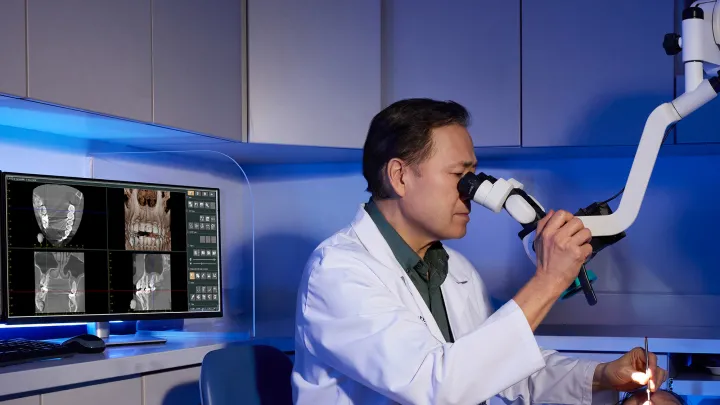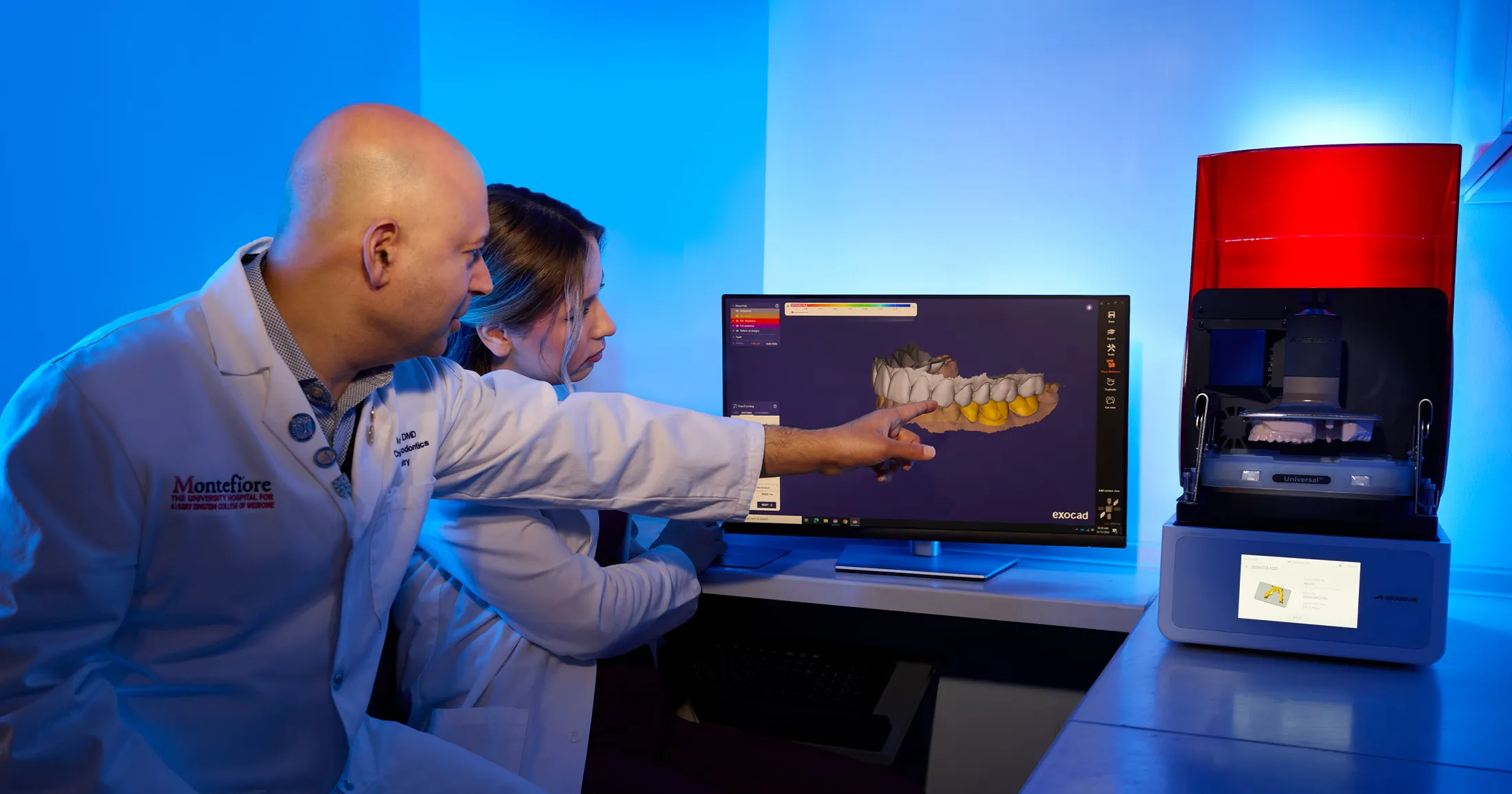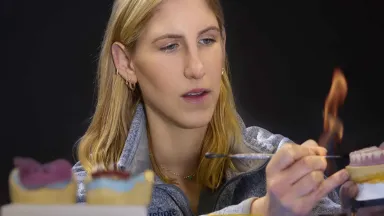The Montefiore Einstein Department of Dentistry and Oral Surgery’s unique collaborative model allows us to provide our patients with personalized treatment plans that address general care, including crowns and cosmetic dentistry. We also offer specialty services for patients who require orthodontics and implants and those with unique needs like facial trauma or congenital conditions. Our focus on preventative care and restorative dentistry helps our patients achieve and maintain healthy, beautiful smiles for life.
Find a Doctor
- Mairaj K. Ahmed, DDS, MS
- Farah M. Alam, DDS
- Lauren A. Atwell-Oglesby, DMD
- Jason D. Baker, DMD
- David A. Baskas, DDS
- Jairo A. Bastidas, DMD
- Alexei Bondarev, DDS
- John C. Castanaro, DDS
- Eytan A. Chen, DMD
- Grace E. Chin, DDS
- Misoo Cho, DDS
- Richard A. Cooper, DMD
- Janna J. Danbe, DMD
- Shikha Dharia, DMD
- Sharon Distant-Johnson, DMD
- Sitki M. Dogus, DDS
- John Dyer, DDS
- Dominic Emanuele, DMD
- Larry M. Genser, DDS
- Allen Glied, DDS
- Stuart Graber, DDS
- Francis J. Graham, DMD
- Annie Herman Perel, DMD
- Stephanie Jarmolow, DDS
- Lisa Jolly, DDS, MS
- Nuntiya Kakanantadilok, DMD
- Robert D. Kelsch, DMD
- Robert Kirchmann, DDS
- Regina M. Koenig, DMD
- Kenneth S. Kurtz, DDS
- Nadia Laniado, DDS
- Alice Lee, DDS
- David J. Leong, DMD
- Leonard J. Mark, DDS
- Marie E. Mckenzie Tola, DDS
- Katerina Mlejnkova, DDS
- Danny J. Naifeh, DDS
- Nadine L. Newsome, DDS
- Patrick J. Nolan, DDS
- Dhvanit Patel, DDS
- Jacqueline Polanco, DDS
- Amit Punj, DMD
- Refka Salib, DMD
- Alexa Schweitzer, DMD
- Miang Chneh C. Teo, DDS
- Mauricio Wiltz, DDS
- Laura Wysocki, DMD
- Soo Yoo, DDS
- Mariam Zade, DDS
Patient-Centered Dental Care Across the Lifespan

Navigating Your Dental Care
Whether it’s preventative care, restorative and surgical treatments, cosmetic procedures or emergency interventions, our team, led by experienced clinicians, including faculty members and renowned specialists, provides personalized dental care through an integrated approach to complex cases. We collaborate closely with other subspecialties, including experts in orthodontics, plastic surgery and craniofacial care.

Smiles for Every Milestone


Unlocking the Future of Dental Care
The Montefiore Einstein Department of Dentistry and Oral Surgery conducts groundbreaking research across multiple subspecialties to advance dental health and enhance the training and clinical skills of future dental professionals.
Our broad collaborations and precise strategic focus yield innovations that evolve 3D printing technologies, develop the next generation of bonding agents and composite materials, and advance novel pain management approaches that can revolutionize clinical decision-making.

State-of-the-Art Technology
The Montefiore Einstein Department of Dentistry and Oral Surgery has been at the forefront of incorporating the most advanced 3D technology to transform the possibilities of dental care by enhancing the precision of treatment, improving outcomes and streamlining procedures. Our team of renowned specialists utilizes technologies that include intraoral scanners, cone beam computed tomography (CBCT) and 3D printing to enable them to diagnose, plan and execute treatments with unprecedented accuracy.
Your Dentistry & Oral Surgery Team
The Montefiore Einstein Department of Dentistry and Oral Surgery team is comprised of specialists and thought leaders across pediatrics, general care, cosmetic dentistry, orthodontics, prosthodontics, periodontics, endodontics, temporomandibular joint and facial pain, and oral and maxillofacial surgery.













